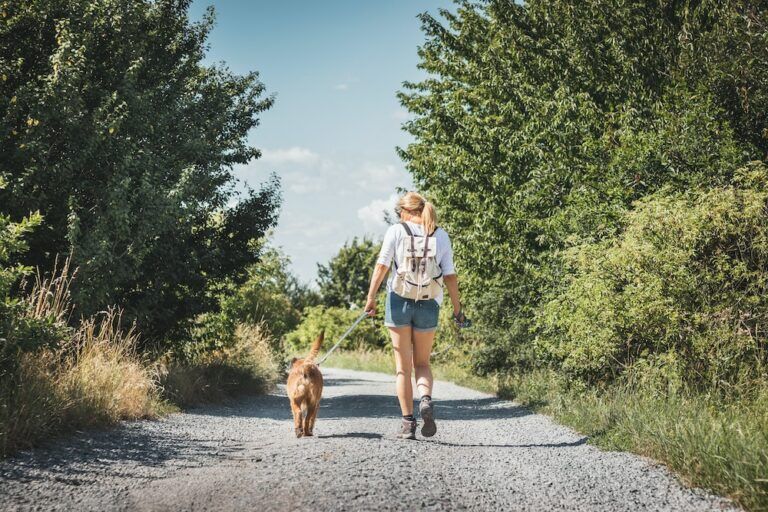5 Ways To Relax Without Alcohol
By Emily Murray | 7 Sources

5 Dry Ways To Relax Without Alcohol
While many people regard alcohol as a viable stress reliever and coping mechanism, its calming effects are only short-term. If stress is prolonged, the momentary positive feelings that come from drinking alcohol do not suffice. Because drinking alcohol to relax is often seen as a socially acceptable concept, misconceptions of its effectiveness are furthered. Longer lasting and higher quality relaxation can be achieved with other activities that do not include the consumption of alcohol.
Here are 5 ways to de-stress without alcohol.
Exercise
Regular exercise is beneficial to overall wellness regardless of one’s athletic abilities. At the base level, exercise triggers several chemical processes that help relieve and release stress. While stress hormones like adrenaline and cortisol decrease, the brain’s mood-elevating neurotransmitters, known as endorphins, increase. These reactions result in what many people refer to as a “runner’s high.” In addition to the endorphins produced, physical activity imitates the effects of stress on the body. This stress simulation allows the body to unconsciously practice processing the corresponding factors. Exercise can also serve as a distraction from normal day-to-day thoughts.
Stress can be decreased even through simple activities like going for a walk, swimming, or biking. It is best to start with easy activities and build up to more strenuous ones if desired.
Go Outside
Spending a little time outside is another way to relax without alcohol. It could be just the prescription needed to reduce stress, according to researchers at Cornell University. The study suggests that just 10-50 minutes spent in nature can prevent stress, improve mood, and lower blood pressure. Going on a walk or even just sitting on the grass can be considered time spent in nature. Setting aside time to be outside can also be a good opportunity to put the phone down and disconnect from technology which can also reduce stress.
Breathing Techniques
In stressful situations, taking a few deep breaths can help de-escalate feelings of stress and anxiety. Long inhalations communicate to your brain that it needs to relax, which in turn lowers increased heart rate and high blood pressure caused by stress. Deep breathing is an art and learning specific exercises can help lower overall stress. Getting more oxygen into the body and releasing more carbon dioxide can also help reduce headaches, dizziness, and muscle cramps.
“Belly Breathing,” or diaphragmatic breathing, is the first lesson in developing its stress-relieving properties. For this exercise, it’s important to sit or lie in a comfortable position. Start by placing one hand below the ribs and the other on the chest. When taking a deep breath in, the hand on the chest should not move, and the stomach should push the other hand out. That deep inhale should be let out through pursed lips, almost like a whistle, while using the hand on the belly to help push it out.
4-7-8 breathing is another common and effective breathing technique. This breathing technique has been scientifically proven to decrease symptoms of stress and anxiety and help with sleep if practiced regularly. Proper form is important: sit up straight, and inhale for 4 seconds, keeping the shoulders and chest down. While inhaling, breathe into the belly until it expands. Hold for 7 seconds, then exhale through an open mouth for 8 seconds. For optimal relaxation results, these exercises should be repeated 3-10 times or as many as it takes to feel more relaxed.
Journaling
Journaling is another way to relax without alcohol. Putting pen to paper is a way to sort out inner thoughts, underlying fears, and normal concerns. It is most effective to journal daily so triggers and patterns can be easily identified and used to develop a stress management plan. Creating a safe space for the expression of feelings while also maintaining a sense of convenience is imperative to making journaling habitual. To achieve this, journals should not follow any specific structure or format. A journal can be a collection of doodles on scrap paper, a leather-bound book, or even the notes app on an iPhone. Content should be topics that best aid self-reflection.
Laughing
It may sound like a joke, but it’s true that laughter has many health advantages. On top of stimulating the heart, lungs, and muscles, laughing affects a person’s stress response by causing heart rates to increase and then quickly decrease. This sudden spike and fall of heart rate in tandem with the production of endorphins creates a feeling of ease and relaxation. A few good chuckles can also alter the physical effects of stress by relaxing tension in muscles and triggering circulation. When we laugh, we release a chemical called oxytocin. Oxytocin neutralizes stress hormones, which ultimately decreases symptoms related to stress. In general, laughing often can improve a person’s mood and overall quality of life.
Seeing a funny movie, playing a board game with friends, or going to see a stand-up comedian are all fantastic outlets for laughter and another way to relax without alcohol.
Get Help Relaxing Without Alcohol
If being relaxed without alcohol is a difficult task for you, your dependence might be unhealthy. [modal-toggle name=”cta-main”]Contact a treatment provider[/modal-toggle] for more help with this topic.
